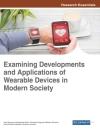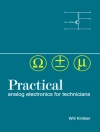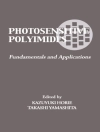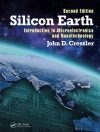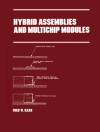Turmeric belongs to the family Zingiberaceae and is a yellow spice of high economic importance due to its medicinal value. Cultivated in tropical and sub-tropical regions around the world, it is used extensively as a colouring, flavouring and preserving agent. In recent years, several drugs derived from natural products have been developed and current drug research is actively investigating the possible therapeutic roles of many Ayurvedic medicines, most notable among those being examined is turmeric. The wide range of pharmacological activities attributed to turmeric come mainly from curcuminoids and two related compounds, demethoxycurcumin and bisdemethoxycurcumin.
This comprehensive book brings together the research carried out on constituents obtained from turmeric and highlights their chemical and biological activities. Comprising 17 chapters, each written by experts in their respective field and curated by authorities, it will be invaluable to all those who are involved in the production, processing, marketing, and the use of turmeric. Appealing to researchers and professionals in natural products, nutraceuticals and food chemists, this book is exposing some of the myths and showing areas for possible future use.
Table of Content
Turmeric – The Miraculous Herb from Ancient India and its Historical Background; Chemistry of Turmeric; Geographical Variations of Turmeric and Curcumin; Turmeric – Active Ingredients Other than Curcuminoids; Curcuminoids – Isolation, Formulations and the Bioavailability Problems; Curcumin Pharmacokinetics and Plasma Determination; Curcumin: A Potential Molecule for the Prevention and Treatment of Inflammatory Disorders; Biological Activities of Curcuminoids; Biosynthesis of Curcumin and Molecular Targets and Biological Mechanism of Curcumin; Effect of Turmeric in Gut Diseases; Molecular Docking Studies of Curcumin; Biological Activities of Non-curcuminoids; Toxicology Aspects of Turmeric; Production, Economic and Marketing of Turmeric; Nanodrug Delivery Formulations for Curcumin Absorption; Curcumin as Dietary Supplements Against Various Diseases: An Insight into the New Trends and Future Perspectives
About the author
Sabu Thomas is professor at the School of Chemical Sciences, Mahatma Gandhi University, Kottayam, India. He received Ph.D from Indian Institute of Technology, Kharagpur and a B.Tech in Polymer Science and Technology from Cochin University. Prof. Thomas has gained additional experience as a visiting professor at a number of universities around the world. A Fellow of the Royal Society of Chemistry and a member of the American Chemical Society, his research has led to the publication of some 360 articles in international peer-reviewed journals, several book chapters and patents. The co-editor of four books, he has been a visiting professor and lecturer at some of the world’s leading polymer research laboratories.


